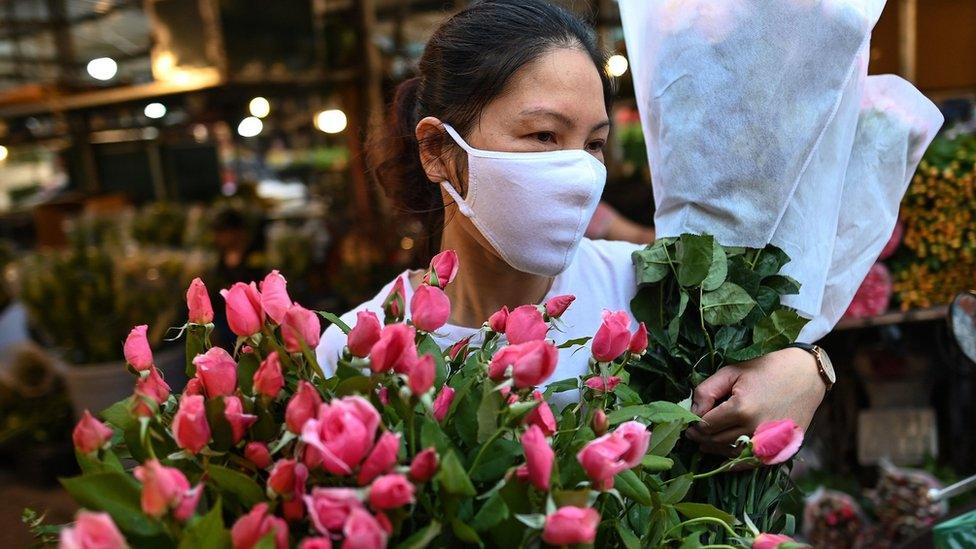Coronavirus in Singapore: The garden city learning to love the wild
- Published
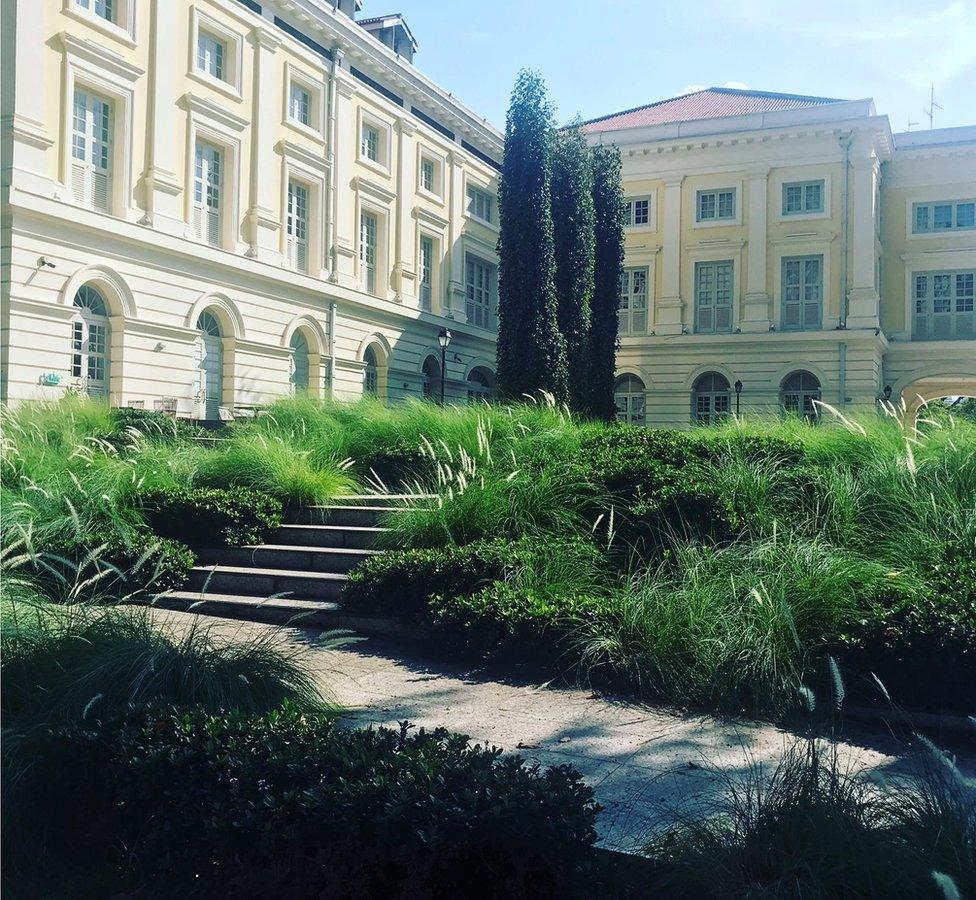
The usually neat and proper green areas around buildings are looking a little different these days
Singapore likes to call itself a garden city, with trees lining its roads, ample lush parks and grass and plants surrounding its buildings.
But it's a garden under constant control - the trees are neat, the grass is well trimmed and the parks are constantly manicured.
Because of coronavirus restrictions, much of that maintenance has now been dialled back, and nature has been allowed to go a lot more wild.
Urban areas have been bursting with life; tall grass, wildflowers and mushrooms in front of buildings, and insects and butterflies in abundance.
With the city gone quiet there's been a unique opportunity to stop and observe all this, and many are calling for the meticulously groomed city to be left alone to allow for a more spontaneous nature experience.
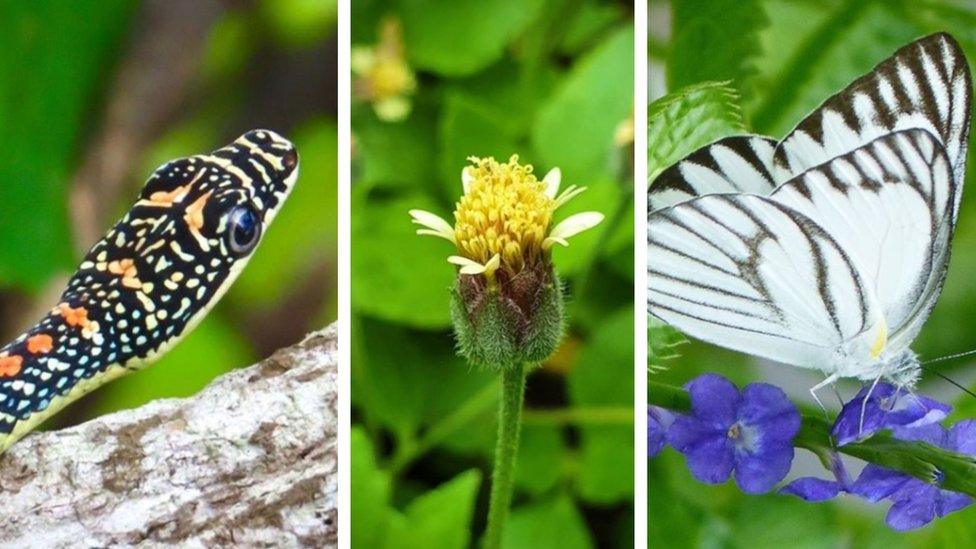
Singaporeans have been submitting nature sightings to a naturalist community
On 7 April, Singapore went into its version of a lockdown, called the circuit breaker. People were asked to stay home as much as possible only stepping out for exercise and essentials.
Most of the maintenance of green areas was deemed non-essential. But also the workers who do most of that work, migrants mainly from India and Bangladesh, were the group hardest hit by the virus.
Hundreds of them continue to become infected every day, mainly due to the cramped living conditions, and the government enforced a much stricter lockdown on them confining them to their dormitories.
The National Parks Board said only essential landscape-related services were allowed to take place with workers kept to a minimum, according to the National Parks Board, adding that a mere 4%-20% of the workforce was being used.
That meant Singapore's usually very high standards of green space maintenance fell by the wayside and people were delighted.
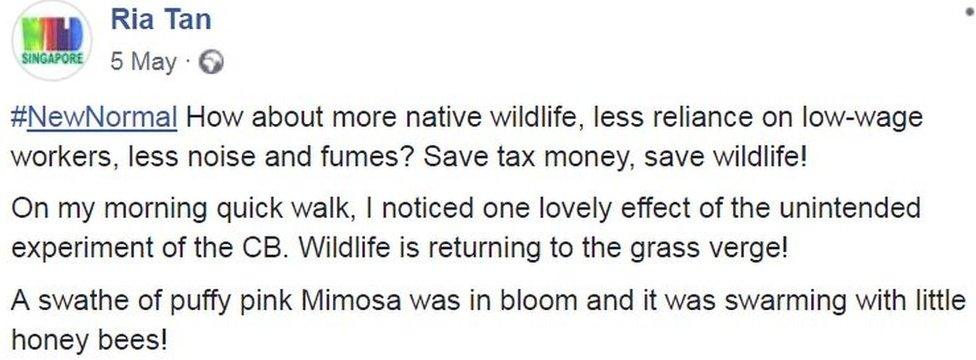
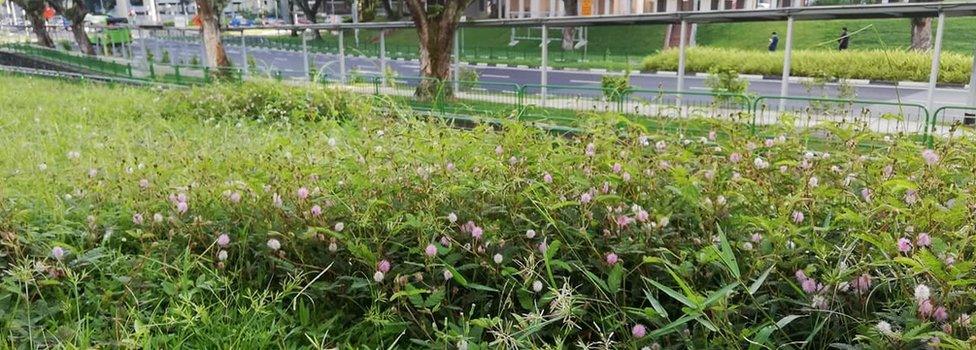
Jessica Tan Soon Neo wrote on Facebook that these were common scenes when she was growing up. "When I was little, I enjoyed tapping on the 'touch-me-nots' and watched the leaves close," she said.
Biologists and nature enthusiasts were quick to point out that it's also led to a more active eco-system and greater biodiversity in the urban parts of Singapore.
"Because of these grasses, we are seeing more butterflies and other insects. The birds that eat these insects also grow in abundance," says Kang Min Ngo from the Nature Society (Singapore).
Thousands have become more interested in that bio-diversity all around them, submitting their everyday nature sightings during the circuit breaker period to an online community for naturalists, external. Among them are a paradise tree snake slithering its way in-between two towers at a housing estates and a Rose-ringed parakeet hanging out in a condominium.
All of this had led many to question whether Singapore should reduce the frequency of cutting grass to allow for these mini-eco-systems to thrive.
Nominated Member of Parliament Walter Theseira raised this in the legislature, pointing out that it could also mean less dependency on cheap labour in the form of migrant workers.
He told the BBC the circuit breaker made Singapore realise what nature actually looks like.
"The previously highly managed landscape - there's nothing normal about that. When we are not looking someone is out there mowing it and now we realise what's the big deal [if that isn't happening as frequently]," he says.
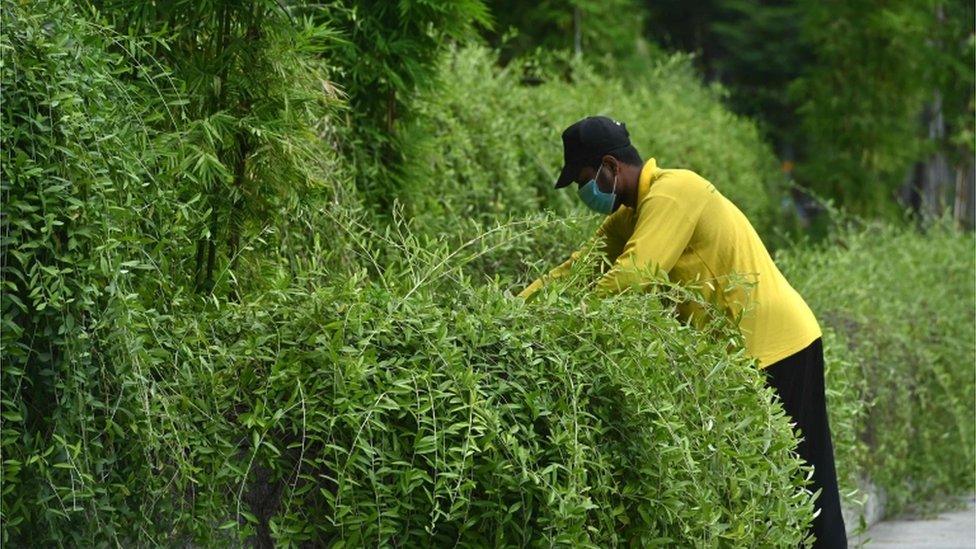
Singapore relies on migrant workers to do most of the maintenance of green areas
The National Parks Board has said as restrictions are eased they will gradually step up the trimming of green verges pointing to health and safety risks of tall grass. They say it could contain litter making dengue control operations more difficult.
But it has also said it will explore more areas that can be "Nature Ways" - areas allowed to be more natural. And their messaging has changed in recent months from calling Singapore the garden city - implying human control - to city in nature.
"As NParks looks into scaling up landscape-related operations in a phased manner, we will continue to introduce more naturalistic landscapes that will attract more biodiversity," it said.
But this calls for a change in what people are used to and expect, according to Anuj Jain from the Nature Society (Singapore).
"We know in a lot of temperate countries where grass tends to be a little more wild or not as frequently mowed, people are ready to accept brown fields, you know as weather changes, but here in Singapore, we tend to want everything that is neat and proper," says Mr Jain.
Post-pandemic, Singapore might have to re-assess its reliance on cheap labour and how many migrant workers it can safely accommodate - how much the natural environment needs to be controlled may play a part in those discussions.
For now, as in so many places, Singapore's nature is quietly doing its part to help people through this difficult time.
- Published20 May 2020
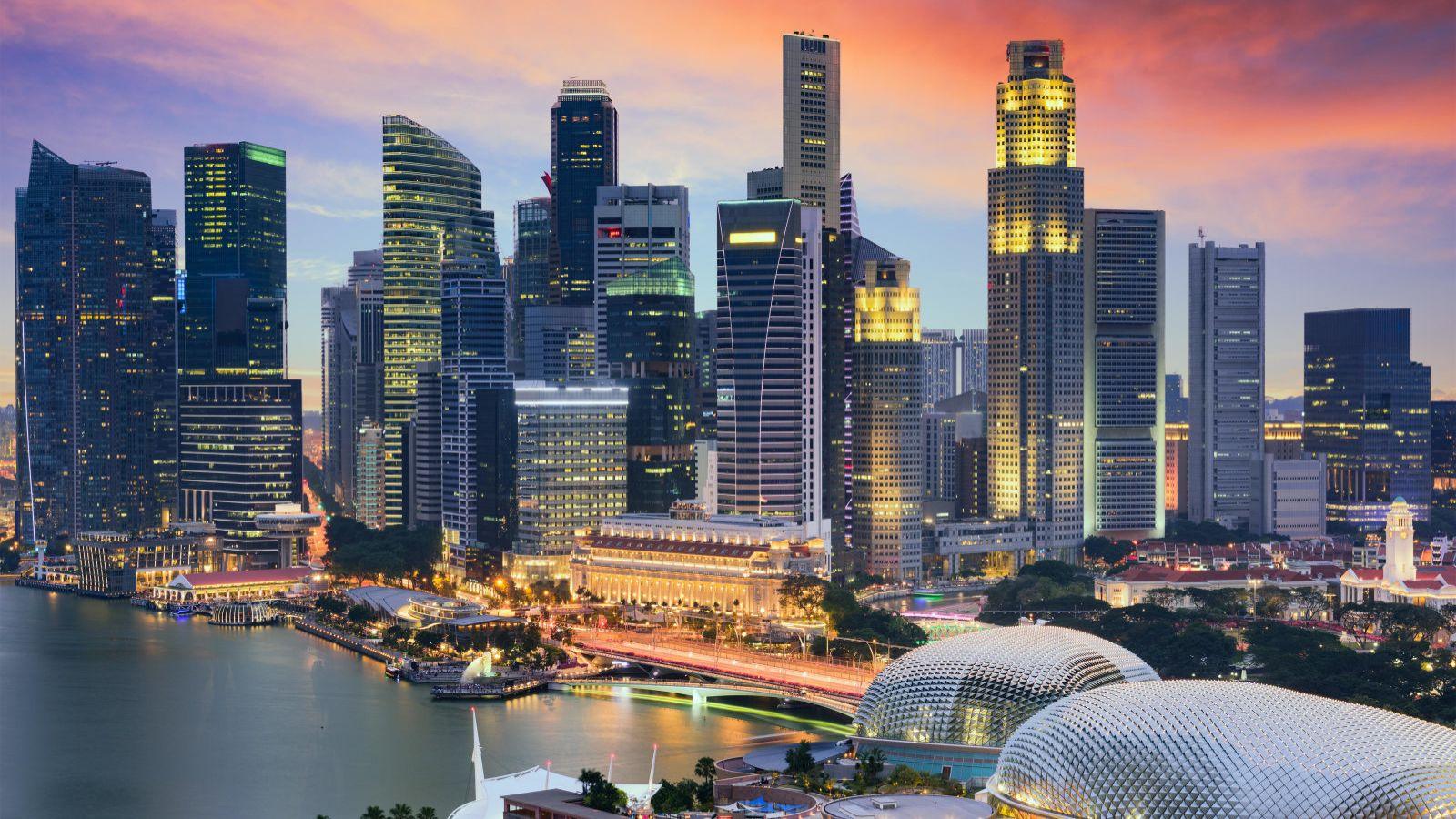
- Published22 May 2020

- Published10 April 2020
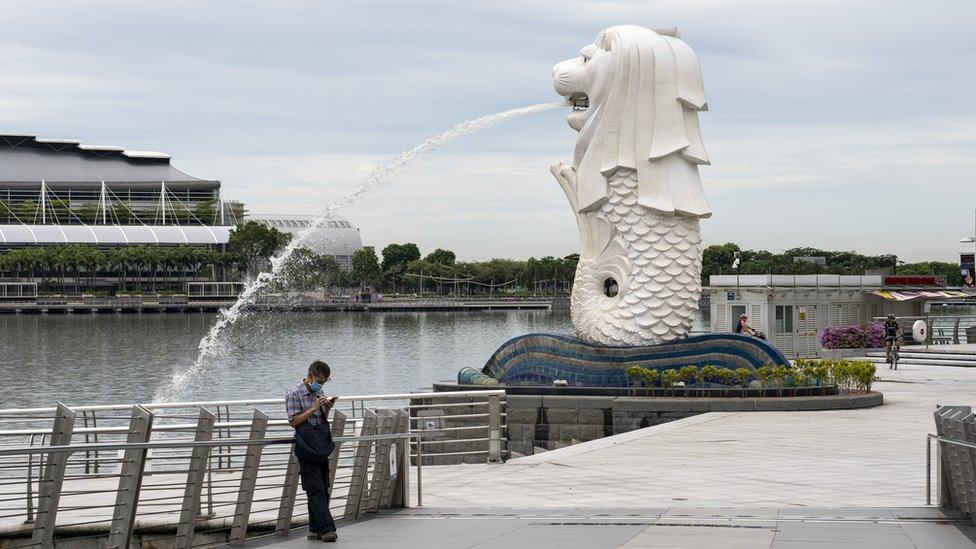
- Published21 May 2020
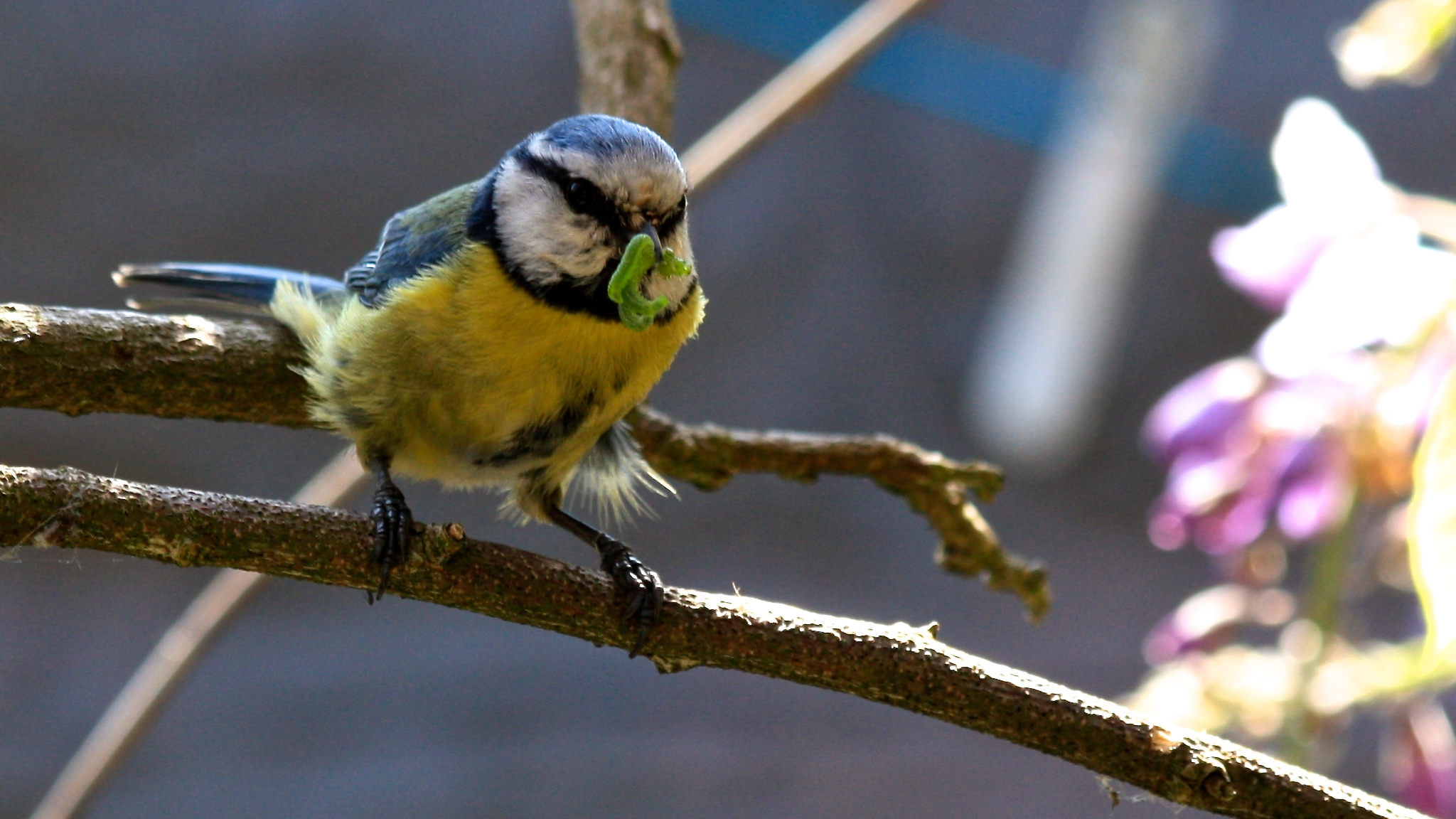
- Published15 May 2020
